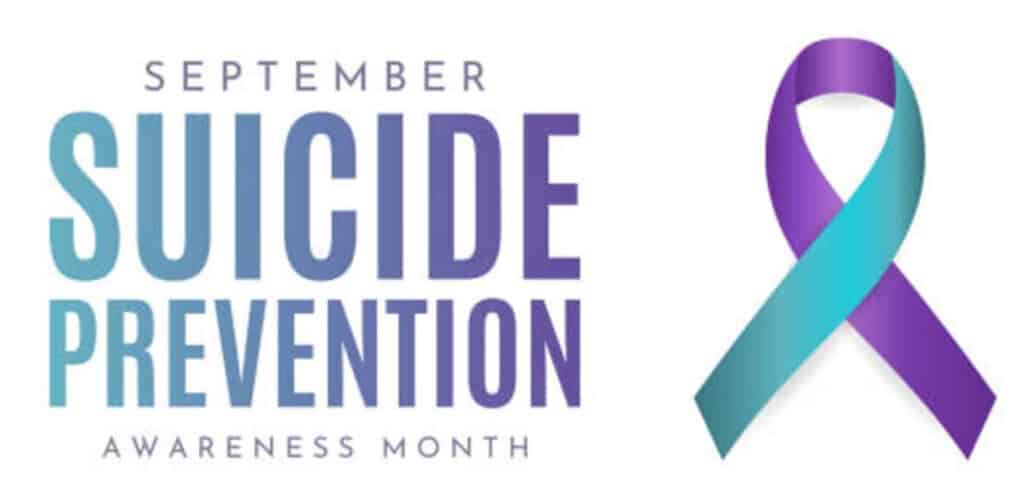
Suicide Prevention Awareness Month: Opening up the Conversation on Suicide By: Katie O’Connell, MSW, LSW
By Katie O’Connell MSW, LSW
Suicide Prevention Awareness Month: Opening Up the Conversation on Suicide
**If you or someone you know is struggling or in crisis, help is available. Call or text 988 or chat 988lifeline.org to reach the 988 Suicide & Crisis Lifeline.**
Talking about suicide has a stigma attached to it – it’s difficult, scary and for many, a conversation filled with uncertainty. A question I hear often from my clients when exploring conversations about suicide or depression in loved ones is, “They seem so fragile, will I make it worse by confronting it?”
September is the month we recognize Suicide Prevention Awareness Month. It is a common misconception that engaging in the topic of suicide with someone experiencing suicidal ideations can worsen their feelings. In fact, the opposite is true. Learning how to open up the conversation to someone who appears to be struggling can help increase prevention, decrease the stigma and provide an opportunity for hope and healing. Below are ways you can check in with loved ones you are worried about, and provide them with the opportunity to feel hope:
- Remove judgment: research has shown that those struggling with thoughts of suicide feel less overwhelmed and depressed when someone checks in on them in an open, non-judgemental way (https://988lifeline.org/promote-national-suicide-prevention-month/). There are often overwhelming feelings of shame associated with suicidal thoughts and ideation. Allowing someone a space where they feel comfortable to be honest about their thoughts and feelings can help them to feel more supported, and increase their likelihood of getting help.
- Use active listening skills: responding to someone who is struggling with suicidal ideation by using active listening skills can help them feel more understood and less alone. Reflecting back what you heard, eg. “I’m hearing that you’re feeling really alone right now” and validating their feelings, “that must be really hard” is a helpful way to let loved ones know you hear and see them, and you’re here for them.
- Don’t argue or raise your voice: while opening up the conversation is not harmful to individuals experiencing suicidal ideation, approaching with anger or frustration can increase their feelings of shame and being misunderstood. This experience can decrease hope and worsen suicidal ideation. Instead, before having this difficult conversation, check in with yourself and ensure you’re in the emotional space to remain calm.
- Practice patience & Follow up: It is normal for people struggling with depression to disengage or feel unmotivated to ask for help. Continue to let them know that you’re there for them and will listen when they are ready. In follow- up, do not be afraid to ask direct questions while expressing your concern, like “do you have a plan or have you considered a plan?”. If the answer is yes, provide support by offering resources or asking if you can help call a therapist or psychiatrist.
These conversations are not easy, so please remember to practice compassion and patience with yourself while navigating through the process of supporting a loved one who is struggling. We can never be perfect in these conversations, but we can share some of our humanness with others to help spark hope and healing.
Please visit the resources below for more information on crisis intervention and access to immediate suicide support.
Resources:
https://www.nami.org/About-Mental-Illness/Common-with-Mental-Illness/Risk-of-Suicide
https://988lifeline.org/promote-national-suicide-prevention-month/
